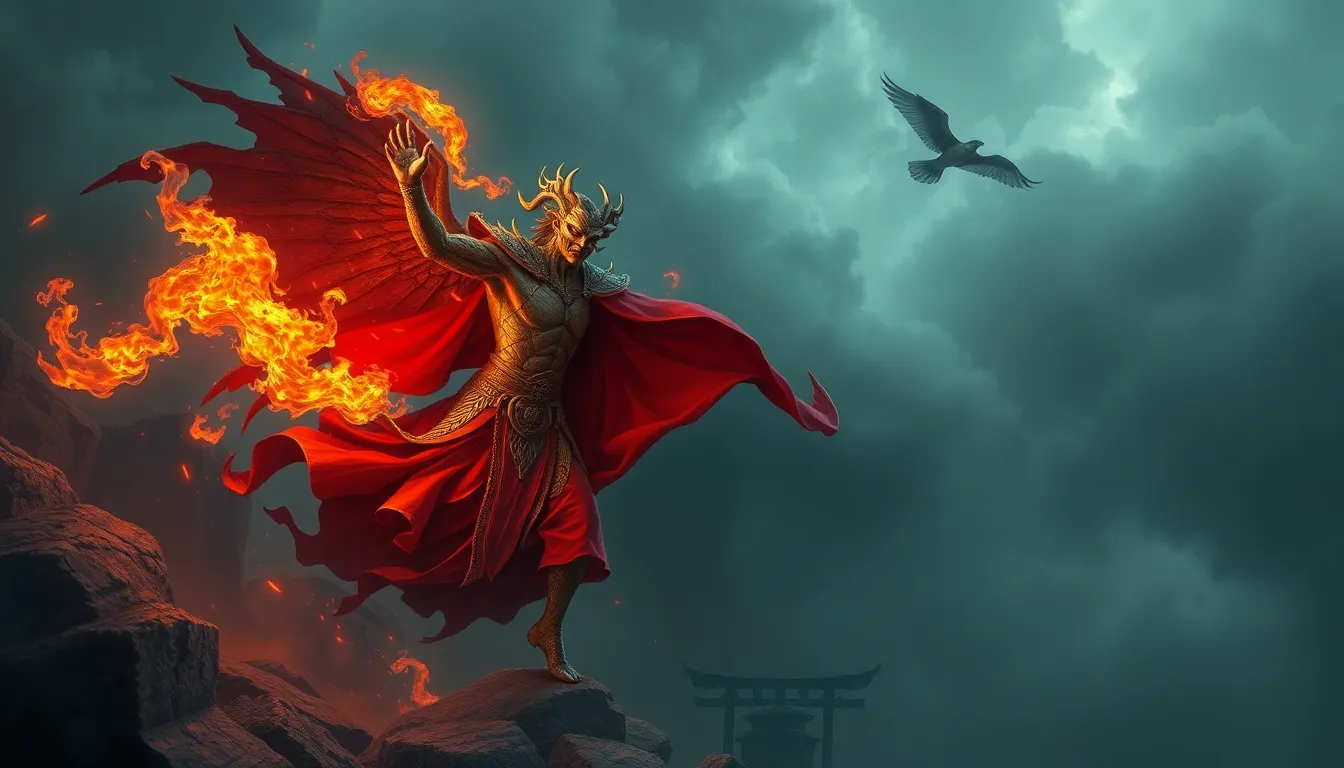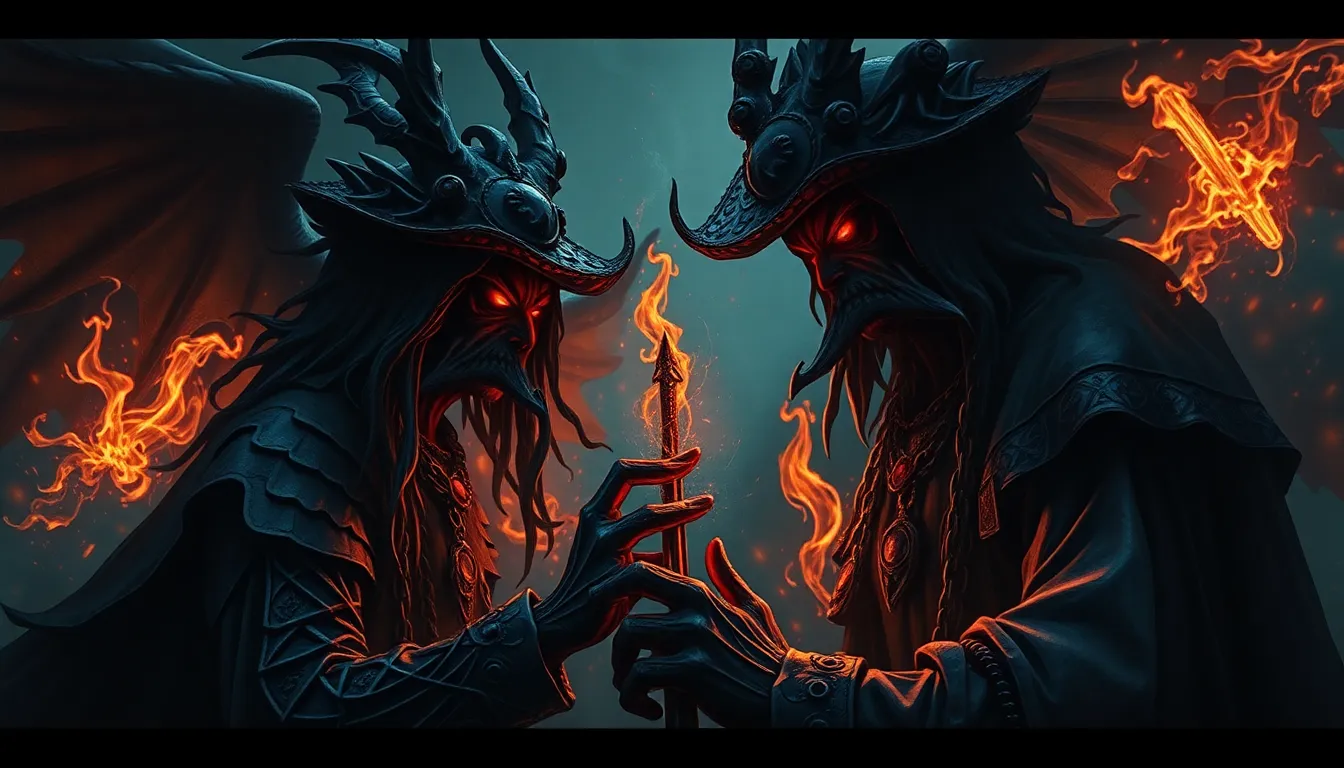Cultural Hero Myths: From Ancient Times to Modern Legends
I. Introduction
Cultural hero myths are narratives that celebrate the extraordinary feats of individuals who embody the values and ideals of a society. These myths serve to inspire, teach, and unite communities by providing relatable figures that represent the struggles and triumphs of humanity.
The importance of hero myths in society cannot be overstated. They reflect cultural values, address moral dilemmas, and offer a framework for understanding complex human experiences. Hero myths have evolved over time, but their core purpose remains: to resonate with the universal human condition.
This article will explore the origins of hero myths, common themes, cultural variations, their evolution through history, modern interpretations, and their role in contemporary society. Additionally, we will critique traditional hero myths and speculate on their future in a globalized world.
II. The Origins of Hero Myths
A. The Role of Oral Tradition in Ancient Cultures
Hero myths often originated from oral traditions, where stories were passed down through generations by word of mouth. This method allowed communities to maintain their cultural identity and ensure that important moral lessons were shared.
B. The Psychological and Sociological Functions of Myths
Myths serve several psychological and sociological functions, including:
- Providing a sense of belonging and community.
- Offering explanations for natural phenomena and human behavior.
- Encouraging moral and ethical conduct through examples of heroic behavior.
C. Examples of Early Hero Myths: Gilgamesh, Hercules, and Others
Some of the earliest recorded hero myths include:
- The Epic of Gilgamesh: An ancient Mesopotamian tale of a king who seeks immortality.
- Hercules: A Greek hero renowned for his strength and his Twelve Labors, symbolizing the struggle against overwhelming odds.
- King Arthur: A legendary British leader known for his noble character and the quest for the Holy Grail.
III. The Common Themes in Hero Myths
A. The Hero’s Journey: Stages and Archetypes
The hero’s journey is a narrative pattern identified by Joseph Campbell, consisting of stages such as:
- Call to adventure
- Crossing the threshold
- Facing trials and tribulations
- Achieving the ultimate boon
- Returning home transformed
B. The Conflict Between Good and Evil
At the heart of many hero myths is the struggle between good and evil. Heroes often face adversaries that symbolize darkness, chaos, or moral corruption, reinforcing the importance of virtue and righteousness.
C. The Transformational Nature of Heroic Tales
Hero myths often depict transformation, not only in the hero but also in society. Through their journeys, heroes can inspire change and encourage their communities to aspire to higher ideals.
IV. Cultural Variations in Hero Myths
A. Comparison of Hero Myths Across Different Cultures
Hero myths vary significantly across cultures, reflecting unique values and beliefs:
- Greek Heroes vs. Norse Heroes: Greek heroes like Achilles represent personal glory and honor, while Norse heroes like Beowulf embody bravery and sacrifice for the greater good.
- Indigenous Heroes in Native American Cultures: Many indigenous myths feature trickster figures, like Coyote, who teach lessons through their cunning and resourcefulness.
B. The Influence of Geography and Environment on Heroic Narratives
Geography and environment play crucial roles in shaping hero myths. Coastal cultures may have heroes associated with the sea, while mountain-dwelling societies might celebrate figures who conquer harsh terrains.
V. The Evolution of Hero Myths Through History
A. The Transition from Oral to Written Tradition
As societies developed writing systems, hero myths began to be recorded in texts, leading to their preservation and the ability to reach wider audiences. This transition helped cement these narratives into the cultural consciousness.
B. The Impact of Religion and Philosophy on Hero Myths
Religious beliefs and philosophical ideas have significantly influenced hero myths. For instance, the rise of Christianity introduced new hero archetypes, such as saints, who embodied moral virtues and served as role models for believers.
C. Case Studies: How Cultural Shifts Altered Hero Narratives
Major cultural shifts, such as the Renaissance and the Enlightenment, led to new interpretations of heroism. The heroic ideals of the classical world were often reimagined to reflect contemporary values, emphasizing reason and individualism.
VI. Modern Interpretations of Hero Myths
A. The Role of Popular Culture: Movies, Literature, and Comics
Modern hero myths are prevalent in popular culture, where films, literature, and comics reinterpret traditional narratives. Characters like Spider-Man and Wonder Woman embody contemporary ideals of heroism, such as responsibility and empowerment.
B. Reimagining Heroes in Contemporary Society
Today, heroes are often reimagined to reflect social issues, including:
- Diversity and representation
- Environmental stewardship
- Social justice
C. The Influence of Technology and Social Media on Hero Narratives
Technology and social media have transformed how hero myths are shared and consumed. Platforms like YouTube and TikTok allow everyday individuals to become heroes in their own right, showcasing acts of kindness, courage, and innovation.
VII. The Function of Hero Myths in Modern Society
A. Heroes as Symbols of Hope and Resilience
Hero myths continue to serve as symbols of hope and resilience, inspiring people to overcome adversity and strive for greatness in their own lives.
B. How Hero Myths Shape National and Cultural Identities
National heroes, such as Martin Luther King Jr. or Mahatma Gandhi, play vital roles in shaping cultural identities and values, reminding communities of their shared history and aspirations.
C. The Role of Heroes in Social Movements and Change
Heroes often emerge in times of social change, galvanizing movements and inspiring collective action. Figures like Malala Yousafzai and Greta Thunberg symbolize the fight for education and environmental justice, respectively.
VIII. Critiques of Traditional Hero Myths
A. The Problem of Exclusivity and Representation
Traditional hero myths have often been critiqued for their lack of diversity, typically celebrating a narrow definition of heroism that excludes marginalized voices.
B. The Question of Morality: Heroes vs. Anti-Heroes
The rise of anti-heroes, such as Walter White from “Breaking Bad,” challenges conventional notions of morality, prompting audiences to reassess what it means to be a hero.
C. Reassessing the Heroic Narrative in a Diverse World
As society becomes more inclusive, there is a growing need to reassess heroic narratives and incorporate a broader range of experiences and perspectives. This shift allows for a more nuanced understanding of heroism.
IX. Future of Cultural Hero Myths
A. How Globalization is Shaping New Hero Myths
Globalization is fostering cross-cultural exchanges that influence the creation of new hero myths, leading to hybrid narratives that resonate with a diverse audience.
B. The Role of Diverse Voices in Redefining Heroism
As more voices from different backgrounds contribute to the narrative, heroism is being redefined to include various experiences and values, enriching the tapestry of cultural myths.
C. Speculation on the Next Generation of Hero Myths
Looking ahead, the next generation of hero myths may reflect contemporary challenges such as climate change, social inequality, and global health crises, providing narratives that inspire action and foster unity.
X. Conclusion
In conclusion, cultural hero myths are vital to understanding human experience across time and societies. They reflect our values, inspire us to confront challenges, and provide frameworks for moral and ethical conduct. As we navigate an increasingly complex world, the evolution of hero myths will continue to shape our identities and the narratives we pass on to future generations.




